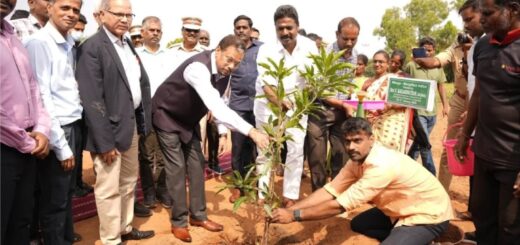Learning Ethics in Age of AI – A Workshop on fact-checking and AI tools
In the digital age, fact-checking has become very important because of the spread of misleading content all over the internet. On 3rd April, a thought-provoking workshop was held in the Department of Electronic Media and Mass Communication at Pondicherry University on fact-checking news, viral videos, AI-generated pictures, and their adverse exploitation outcomes. The resource person was Mr. Habeeb Rahman YP, an alumnus of the department who is currently working as an assistant professor at the University of Calicut. He introduced the participants to the industry standard tools and methods to catch the misleading and plagiarised content present on digital media.
The workshop started with a catchy interactive hook by the resource person to grab the attention of the participants followed by the introduction of misinformation and disinformation and how adversely it is impacting our political and social views. The discussion went through the process of creation of false news made to manipulate the thought process of people and how they share that news without proper observation.
Mr. Habeeb Rahman introduced the participants to a handful of websites that do fact-checking, which includes Alt News, BoomLive, Factly, and Snopes, where they cross-check false and fabricated news content. These websites do a comprehensive investigation and reveal the truth behind the false videos, articles, and AI-generated content.
The workshop explored the manipulation of AI-generated images and deep fakes that are hardly detectable in today’s ever-evolving technological time. Mr. Habeeb Rahman described how AI images can spread hatred, mislead individuals, or damage someone’s reputation or social standing. He also conducted a few engaging activities in which participants were involved and identified the AI images.
Mr. Habeeb Rahman showed a few case studies that also explored how false news can spread communal unrest, mob lynchings, and harm personal reputations. Fact-checking is a tool that is not just for media students; everyone should learn it as a responsible citizen.
One of the key activities was a quiz on how to utilize Google Lens to check viral images. With the help of Google Lens, people can identify the real story or description of the images that are being used to manipulate the public. In the quiz, the students identified the images using Google Lens.
On 4th April, the concluding day of the workshop, the discussion was on generating images using Artificial Intelligence (AI). Mr. Habeeb Rahman introduced software like ChatGPT, Firefly, and Gemini, explaining thoroughly how images can be generated using the individual’s imagination.
A group photo of the participants taken after the workshop
The workshop was full of engaging activities. The participants were fully involved in the session, and all of them learned about fact-checking, identifying false news, plagiarism, and the use of AI in digital media. As AI is evolving, it is turning out to be a groundbreaking invention, but everyone needs to be aware of its pros and cons and how it can manipulate citizens with constructive or destructive consequences.
–Written by Priyanshu Shekhar
–Edited by Rupam Shukla



